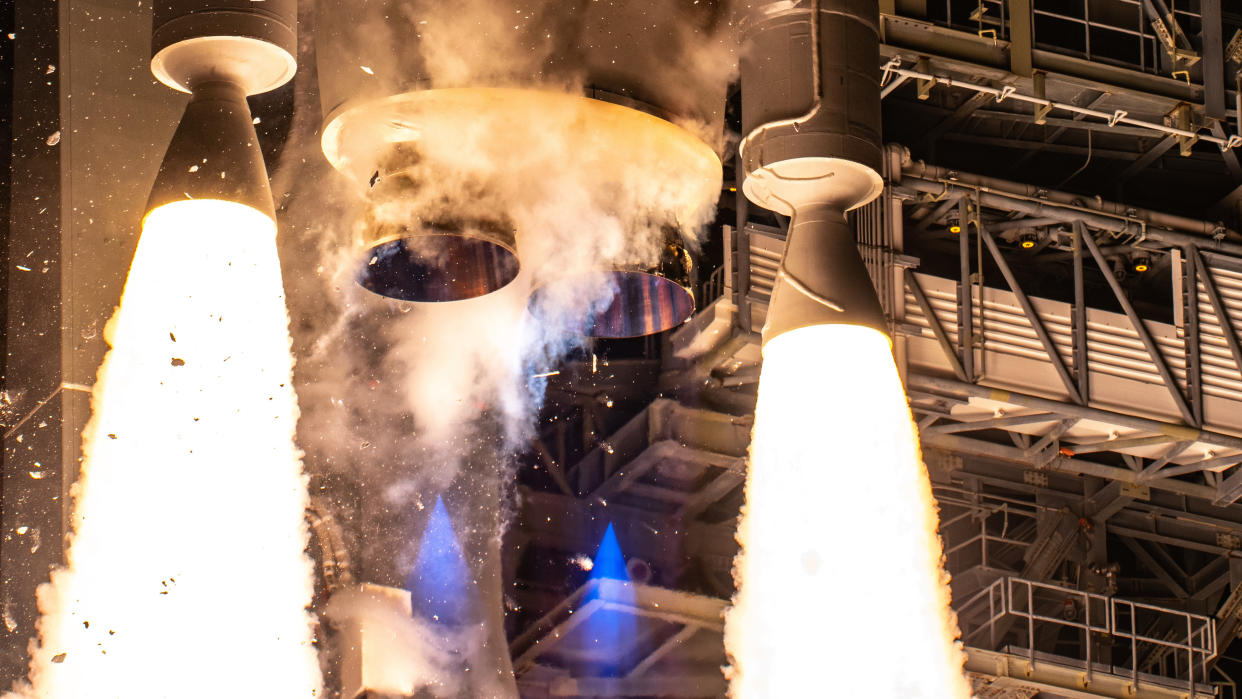Pentagon picks SpaceX, Blue Origin and ULA for $5.6 billion launch deal

SpaceX, Blue Origin and United Launch Alliance (ULA) have been chosen to provide launch services for the U.S. Space Force.
The three companies will compete for National Security Space Launch (NSSL) contracts worth up to $5.6 billion across fiscal years 2025 through 2029, the U.S. Department of Defense announced on June 13.
The contracts are part of the NSSL Phase 3 launch services program. At least 30 NSSL Lane 1 missions, which head for low Earth orbit, will be launched over the five-year span.
National security missions include launches of classified satellites for U.S. agencies such as the Missile Defense Agency, Space Development Agency and National Reconnaissance Office.
Contracts for NSSL Launch Phase 3 Lane 2 missions will be awarded at a later time. These missions will use heavy-lift rockets to target more challenging orbits.
Notably, the newly announced selection marks the first time that Jeff Bezos' Blue Origin has been picked for national security launch contracts. The company has long targeted attaining such contracts, but was unsuccessful with a NSSL Phase 2 bid, despite an appeal.
The first flight of Blue Origin's New Glenn heavy-lift rocket is currently scheduled for August 2024, aiming to send NASA's two-spacecraft EscaPADE (Escape and Plasma Acceleration and Dynamics Explorers) mission to Mars.
Meanwhile, ULA will be aiming to get its new Vulcan rocket flying regularly after a successful first launch in January.
RELATED STORIES:
— What is the U.S. Space Force and what does it do?
— Space Force orders 'jetpack' to give 2 years of maneuverability to military satellite
The NSSL Phase 3 is designed to increase competition, driving down launch costs for national security payloads, SpaceNews reports. The contract notice stated that seven offers were received for the competitive acquisition.
The next opportunity for launch companies to secure national security launches will come in financial year 2025.

